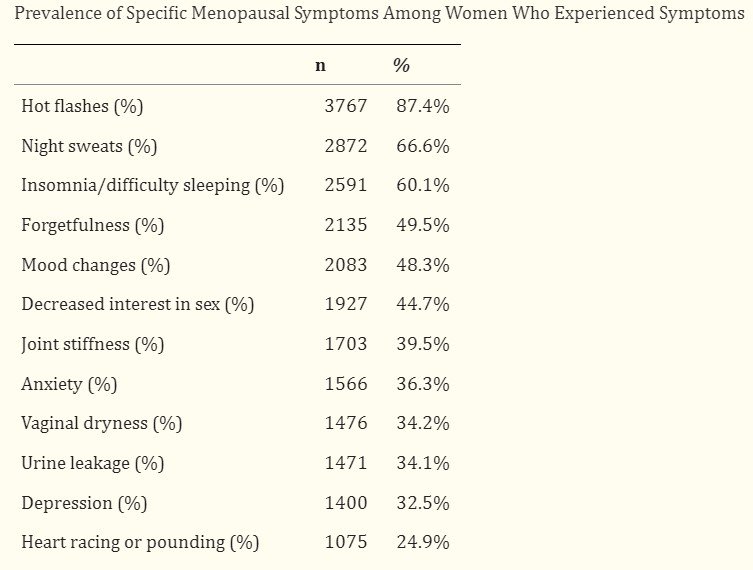Sexual Health and Survivorship
In this week’s episode of the Cancer Education Series, the founder of Above + Beyond Cancer, Dr. Richard Deming discusses Menopause and Sexual Health with Dr. Karen Kemp-Glock, a certified menopause practitioner at MercyOne Comfort Health Center for Women. Dr. Glock grew up in Ames, IA and went to Texas Lutheran College in Seguin, Texas for her undergraduate degree. Karen got her Masters at the University of Iowa in Chemistry. She then worked at the Diagnostic lab in Iowa State for a few years and then returned to schooling about medicine through Des Moines University. Karen is also certified as a menopause practitioner and has additional trainings in sexual medicine. Dr. Glock speaks about how she really loves the work she does because it is so preventative, giving people with uteruses access to the resources they need.
Dr. Glock discusses how puberty is often discussed, although at a minimum, while menopausal education is ignored by society. As our population is aging, there should be more both educational and supplemental resources for those struggling with the effects of menopause.
Reproductive capacity begins to decrease in the mid 30s, as many individuals deal with night sweats/hot flashes, disruption to the menstrual cycle, sporadic movement of hormone levels, and more. The average age for menopause in Iowa is 51 years, which is defined by having no period for 12 months without outside influence, such as medication. Furthermore, individuals with uteruses also deal with termed perimenopause, the time before menopause. This is a window of vulnerability where they can develop anxiety and depression. This can happen at the peak of an individual's career; when they have older children, younger children, and parents to take care of.
Transitioning through menopause and perimenopause, individuals experience hair thinning, disruption of sleep, weight gain, vaginal dryness/discomfort during sexual activity, lower libido, deteriorating bone health, and more, due to the change of estrogen and progesterone levels as shown on the chart to the below.
Dr. Glock discusses the importance of adjusting one’s physical health routine throughout menopause, such as through diet or exercise, to counteract the change of hormones, and properly adjust the body back to a new equilibrium.
Individuals that go through cancer treatment often see an even more complicated experience with menopause and their sexual health. Many different types of cancer treatments can cause early menopause, as found here. These include surgery, radiotherapy, chemotherapy, and hormone therapy. Specifically, chemotherapy often causes the ovaries to stop making estrogen, and have menopausal type effects, where their symptoms are greatly exaggerated. With uterus, cervical, vaginal, and anal cancer, radiation is one of the main ways of treatment. Radiation can cause strictures, scarring, shortening of the vagina, and various other issues. Similarly, hysterectomies change the architecture of an individual's body. Individuals are put on a conveyor belt of treatment through surgery, radiation, chemotherapy, and anti-estrogens. Additionally, Dr. Glock asserts studies show that within premenopausal women who have been diagnosed with breast cancer, 80% of them will gain 20 pounds throughout the course of treatment.
Although they might be cured from cancer, they have been thrown into menopause and face life long consequences.
There are some potential treatments; Individuals going through natural menopause can use estrogen as a potential medication to help reduce side effects. However, those who have a history of cancer, such as estrogen receptive breast cancer, and get thrown into menopause, need other medications. There are potential medications for individuals dealing with these symptoms such as SSRI’s (treats non hormonal hot flashes + anxiety and depression), paroxetine (treats hot flashes and night sweats), oxybutynin (treats overactive bladder), and more. Individuals should discuss all potential treatments with their health care provider(s). Overall, sexual health and pleasure is not brought up as much as it should be between a doctor and patient. Individuals and couples therapy is extremely valuable, along with communicating with one’s health care team.
For more, check out this conversation in detail on the Above + Beyond Cancer's Youtube channel.
Blog Written by:
(they/them/theirs) (what's this?)
BA Ethics & Public Policy, BBA Management, minor Social Justice
annavanheukelom@gmail.com

